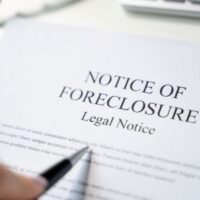Foreclosure Avoidance Strategies in Florida

There is little in life more frightening than the thought of you and your family losing your home to foreclosure. And along with foreclosure come other negative effects such as serious credit damage, potential deficiency judgments, and owing taxes on forgiven debt. However, far too often it is a sad reality that millions of Americans have had to endure.
While not every foreclosure is avoidable, there are steps you can take to help prevent a foreclosure, and protect yourself and your home. At the very least, there are some strategies you might be able to implement to help avoid some of the potential negative effects listed above. This article will discuss some of the strategies and defenses you might be able to implement if you are facing foreclosure.
It cannot be overstated how crucial official advice from a knowledgeable foreclosure defense attorney can be as you move forward. While this article gives some valuable, general information: there are many nuances and there is no replacement for receiving official, tailored advice from an experienced attorney. The esteemed foreclosure defense attorneys at Suncoast Civil Law are here to discuss your case with you when you are ready to move forward.
Protecting Yourself and Your Home
Foreclosure proceedings might incur if you are unable to make your mortgage payments. The lender has the right to repossess your home if you default on the loan.
Fortunately, there are several different strategies you might be able to implement that avoid an actual foreclosure. If the foreclosure is unavoidable, there may at least be some steps you can take to avoid other negative effects of foreclosure, like damage to your credit.
Reach Out to Your Lender
The first step might be openly communicating with your lender. If you believe there is a possibility you might miss a payment, many lenders might allow you to skip a payment or two if they have confidence that you will be able to catch up. This is not something your lender is required to do: but it is worth reaching out and opening those lines of communication.
Forbearance
A mortgage forbearance might be granted by a lender if requested. A mortgage forbearance is where the mortgage lender temporarily reduces your payments or allows you to skip them. Bear in mind, a forbearance is not a forgiveness of debt. It simply allows this debt to be added back into your mortgage for you to repay when the forbearance ends.
Deed in Lieu
A deed in lieu of foreclosure allows you to return your home to the bank and move on with minimal damage to your credit score. Mortgage lenders are not required to grant you a deed in lieu. While this option does not keep you in the home, it does avoid the kind of damage to your credit that a foreclosure causes.
This process may seem simple, but it is deceptively complex. There are many possibilities that could end with you continuing to owe money on the home even after you surrender it. And forgiven debts are sometimes taxed as income. Be sure to work with an attorney to fully understand what you are signing up for.
Short Sale
A pre-foreclosure sale or “short sale” is when the bank allows the home to be sold for less than what you owe on it. This is a complex process best navigated with an attorney.
These are just some of the options available to you, and we have only scratched the tip of the iceberg. Consult with an experienced foreclosure defense attorney to ensure your best interests are served.
Contact Suncoast Civil Law
For legal counsel in your own foreclosure case, contact an experienced Sarasota foreclosure defense attorney at Suncoast Civil Law.
Source:
hud.gov/helping-americans/avoiding-foreclosure
